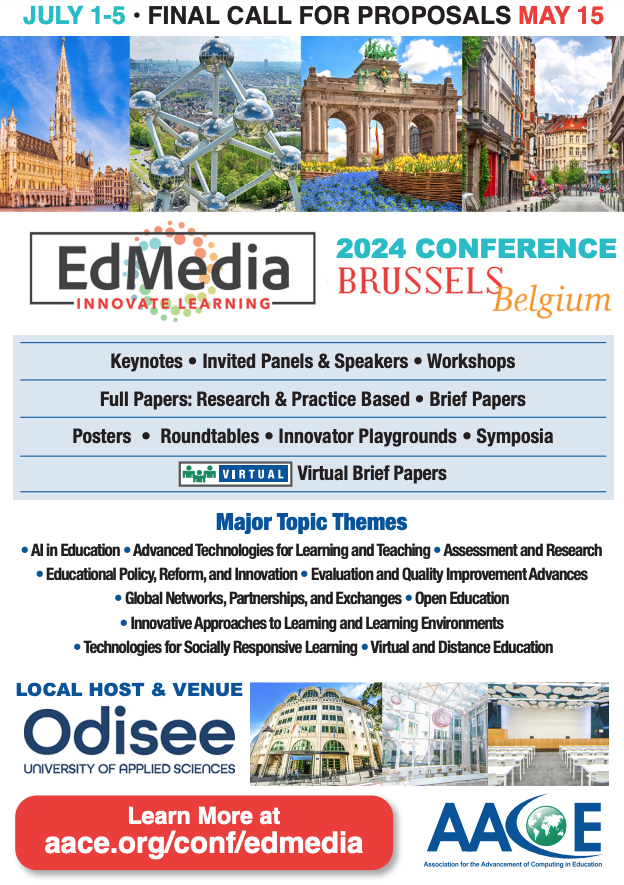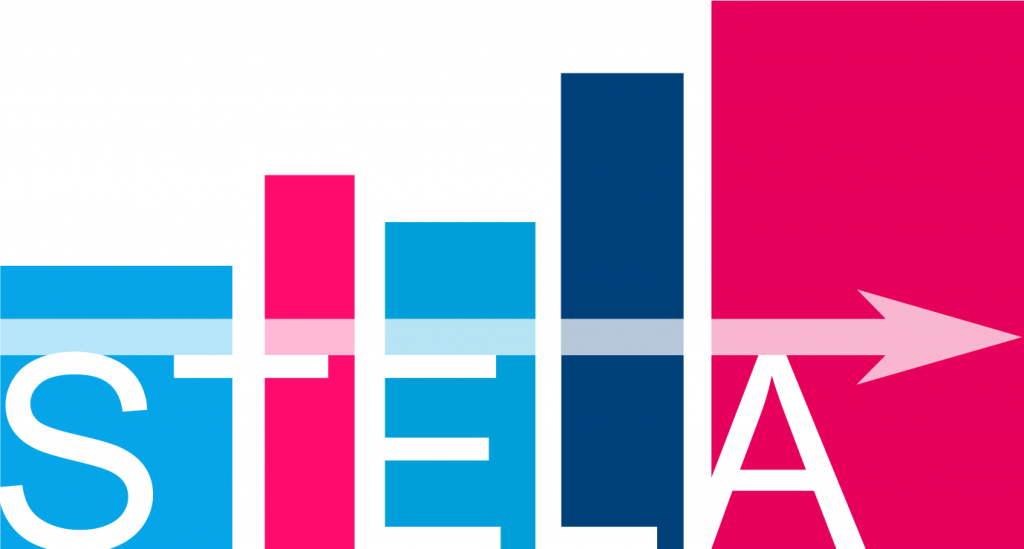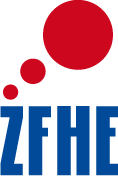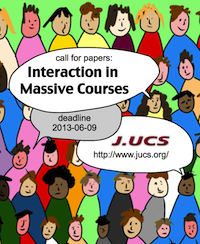I am thrilled to announce the CallForPapers with the deadline of 15th of May, for this year’s EdMedia Conference (1.7-5.7.2024), located in Brussels.
Find here the poster of the call:

[Link to the conference homepage]
I would love to see you there 🙂

Digitale Lehre an und rund um der Technischen Universität Graz
I am thrilled to announce the CallForPapers with the deadline of 15th of May, for this year’s EdMedia Conference (1.7-5.7.2024), located in Brussels.
Find here the poster of the call:

[Link to the conference homepage]
I would love to see you there 🙂
I would like to invite you to a Special Issue about „Innovative Technologies in Education“.
Dear Colleagues,
In the current situation of a worldwide pandemic, the use of digital technologies in education is not only a hot topic but simply a necessity. Due to the lockdown of schools and universities over an extended period of time, teachers had no alternative other than to use such technologies. On the one hand, we were able to see how education can work even in such a situation. On the other hand, we also witnessed the lack in skills needed to deliver high quality digital lectures.
Under these circumstances, we are today living in a world where teaching and learning are strongly influenced by technologies. For tomorrow, digital education can no longer be neglected. We must build upon these new circumstances to improve education as much as possible.
For this Special Issue, we are seeking contributions addressing the following research questions, but the list is by no means exhaustive:
– What is the influence of digital technologies on education?
– What are the future trends of innovative technologies in education?
– What are examples of how innovative technologies can be used in education?
– How can digital technologies contribute to high quality education?
Deadline for manuscript submissions: 31 October 2022.
Find here further details [Special Issue CallForPaper]
I am very happy that 7th EMOOCs conference will be held in Potsdam next year – in June 2021. Together with Anja Lorenz I will chair the exeperience track and if possible I would love to see you on site.
Now the Call for Papers is online and we invite you to participate:
The Experience Track sessions will provide participants with the opportunity to debate and learn more about the role, current trends and future directions that MOOCs are taking to continue their online learning delivery in Higher Education. The track will bring together diverse stakeholders to discuss four important areas around MOOCs. First, by discussing best practices in MOOC production processes, quality assurance, with emphasis on sustainable models that address the issue of certification and credentialing. A second focus is on the incorporation of pedagogy and MOOC design elements that can bring rich learning experiences, as well as new innovative teaching and learning models that can match the expectations of the stakeholders. Third, we also invite contributions that reimagine and bring new affordances to the role of technology in MOOCs, such as the development or use of new virtual learning environments and social spaces, interactive and interoperable learning objects, immersive and wearable technologies, or techniques such as a gamification, and how all of these impact student engagement and learning outcomes. Last, the multiple roles of analytics within the MOOC ecosystem, for example to systematically optimize production or measure quality, to quantify the effectiveness of different learning designs and models in terms of learners’ engagement and outcomes, or to be included as part of new technological analytics products such as dashboards, adaptation or recommendation engines.
Find the final call right here at the conference website:
Deadline for your contribution is 15th February 2021.
 Together with my colleagues from the STELA project we are organising a parallel session for next year International HCI 2017 conference (9 – 14 July 2017) in Vancouver. Our session is dealing with the topic „Learning Analytics for Secondary and Higher Education“ and we are looking for contributions in this field.
Together with my colleagues from the STELA project we are organising a parallel session for next year International HCI 2017 conference (9 – 14 July 2017) in Vancouver. Our session is dealing with the topic „Learning Analytics for Secondary and Higher Education“ and we are looking for contributions in this field.
If your are interested in the session we are able to send you a personal invitiation through the submission system. Therefore just send a short email to martin [dot] ebner [at] tugraz [dot] at.
Deadlines for the Call:
Please note that Papers will appear in volumes of the Lecture Notes by Springer.
I am very happy that I can invite to a Special Interest Group at this year ED-Media 2015 conference in Montreal, Canada. If you are interested to join us there, please consider the Call for Paper, which will be open till 29th April 2015:
The Emerging Technologies for Learning and Teaching Special Interest Group (SIG) would like to specifically invite innovators, technology-focused, and visionary people of all educational sectors to present and discuss their results with this SIG during EdMedia 2015. The SIG chair encourages researchers to submit contributions with a strong focus on technologyand specifically, proposals should focus onhow technology-enhanced learning can be supported by innovative technologies. For more information and instruction on submitting your proposals, please click the link below.
Please find here the [Call For Paper] and here detailed information about the [ED-Media 2015]. I would love to see you in Montreal to discuss new ideas for technologies in education.
If you have any question, please do not hesitate to contact me martin[dot]ebner[at]tugraz[dot]at.
I just like to hint to an interesting Call for Papers titled „Digital Innovations in Teacher Education„. The University of Teacher Education Vienna in cooperation with the Reflecting Education Journal solicits original (research) papers framing pedagogic and didactic considerations, applicative scenarios or taxonomies in the field of technology-enhanced (language) learning and teaching within the context of teacher education/development.
There is little doubt that digital innovations have initiated a vivid discussion concerning the reformation or adaptation of higher education in general (cf. Wiley 2009, Strasser & Greller 2014). Especially in the field of teacher education, certain developments concerning a curricular implementation of digital technologies in initial teacher education and teacher training (including post-graduate teacher education, and continuing professional development/teacher development) can be noted. However, experts (cf. Wiley 2009, Siemens 2004) suggest that especially technological developments have often not been didactically implemented in teacher education/development curricula
The deadline for submission is February 7th, 2015 – find here the Call for Paper.
 It’s a great pleasure to announce the Call for Papers for next year eMOOCs conference. The Stakeholder Summit will be held on 18-20 May 2015 at the Université catholique de Louvain campus in Mons (Belgium).
It’s a great pleasure to announce the Call for Papers for next year eMOOCs conference. The Stakeholder Summit will be held on 18-20 May 2015 at the Université catholique de Louvain campus in Mons (Belgium).
Massive Open Online Courses (MOOCs) and other open education concepts innovate learning: Universities are opening up education to online users and making their learning resources freely accessible. This raises many questions, e.g. how to integrate formal and informal learning settings, how to support the masses of students, and how to monitor their learning progress. The research track aims to feed the general debate on MOOCs with underpinning scientific data.
The deadline for submission will be the 12th January 2015. We are looking forward to see you there 🙂
 Die Ausgabe 10/3 der ZFHE (Mai 2015) steht im Zeichen von „E-Learning-Strategien für Hochschulen“ und in unmittelbarem Zusammenhang mit einer Tagung an der Universität Salzburg am 5. Mai 2015. Als Gastherausgeber/innen betreuen das Sonderheft Sabine Seufert (Universität St. Gallen), Michael Kopp (Universität Graz), Bettina Schlass (Blackboard & Moodlerooms) und ich.
Die Ausgabe 10/3 der ZFHE (Mai 2015) steht im Zeichen von „E-Learning-Strategien für Hochschulen“ und in unmittelbarem Zusammenhang mit einer Tagung an der Universität Salzburg am 5. Mai 2015. Als Gastherausgeber/innen betreuen das Sonderheft Sabine Seufert (Universität St. Gallen), Michael Kopp (Universität Graz), Bettina Schlass (Blackboard & Moodlerooms) und ich.
Wir möchten mit diesem Call Entwicklungen aufgreifen, da sich gerade im deutschsprachigen Europa auf dem Sektore einiges tut.
Inhaltliche und organisatorische Details finden man im Call, der am ZFHE-Portal unter https://www.zfhe.at veröffentlicht wurde. Sollte es Fragen dazu geben, mich bitte einfach zu kontaktieren 🙂
Wichtig:
Die Zeitschrift Bildungsforschung erbittet wieder Beiträge für die nächste Ausgabe. Das Thema ist interessant und birgt einiges an Diskussionspunkten. Bernhard Schmidt-Hertha und Margaretha Müller suchen Beiträge über eine Personengruppe, die sonst in Forschungsbeiträgen der Bildungsforschung nur selten im Vordergrund steht: Das nicht-pädagogische Personal
Einreichtermin ist der 31.7.2013:
Klicken Sie auf den unteren Button, um den Inhalt von de.slideshare.net zu laden.
 Together with my colleagues from the University of Munich I like to call for submissions on the topic „Interaction in Massive Courses„. The contributions will appear as Special Issue of the journal J.UCS (Journal of Universal Computer Science) which is an open access journal and holds an Impact Factor.
Together with my colleagues from the University of Munich I like to call for submissions on the topic „Interaction in Massive Courses„. The contributions will appear as Special Issue of the journal J.UCS (Journal of Universal Computer Science) which is an open access journal and holds an Impact Factor.
Please consider to send us a scientific contribution on 9th June 2013 at latest, if the following sounds interesting and meet you research interests as well:
The Special Issue aims to gather research works in the field of massive courses with a special focus on enhancing interaction between lecturers-students or students-student in face-to-face situations or completely online by using different kind of technologies (MOOC). For example, some few information systems created some years ago, summarized by the term Audience Response Systems (ARS). Here students are able to make votes on lecturers’ questions by using mostly special hardware (Anderson et al, 2003). Other possibilities are the use of Web 2.0 technologies (Purgathofer & Reinhard,
2008) or Social Media (Ebner, 2011) to enhance students’ engagement in live-lecturing-situations. In the last years, the above-mentioned MOOCs attracted the interest of thousands of students. Obviously this leads to new challenges on how to overcome the management of a huge number of occurring interactions and makes new strategies necessary.
Assuming that rich interactions in large groups of learners are even more critical in the development of academia this Special Issue of the Journal of Universal Computer Science is dedicated to research on media fostering interaction in massive courses.
Here you will find the detailed Call for Paper (CfP).